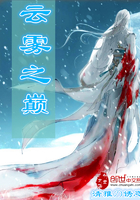“Ridden the wha-ha-ha-ha-ha.” Talking horses always become more horsy in accent when they are angry.)
“In other words,” it continued, “you can’t ride. That‘s a drawback. I’ll have to teach you as we go along. If you can‘t ride, can you fall?”
“I suppose anyone can fall,” said Shasta.
“I mean can you fall and get up again without crying and mount again and fall again and yet not be afraid of falling?”
“I-I’ll try,” said Shasta.
“Poor little beast,” said the Horse in a gentler tone. “I forget you‘re only a foal. We’ll make a fine rider of you in time. And now-we mustn‘t start until those two in the hut are asleep. Meantime we can make our plans. My Tarkaan is on his way North to the great city, to Tashbaan itself and the court of the Tisroc-”
“I say,” put in Shasta in rather a shocked voice, “oughtn’t you to say
‘May he live for ever’?”
“Why?” asked the Horse. “I‘m a free Narnian. And why should I talk slaves’ and fools‘ talk? I don’t want him to live for ever, and I know that he‘s not going to live for ever whether I want him to or not. And I can see you’re from the free North too. No more of this Southern jargon between you and me! And now, back to our plans. As I said, my human was on his way North to Tashbaan.”
“Does that mean we‘d better go to the South?”
“I think not,” said the Horse. “You see, he thinks I’m dumb and witless like his other horses. Now if I really were, the moment I got loose I‘d go back home to my stable and paddock; back to his palace which is two days’ journey South. That‘s where he’ll look for me. He‘d never dream of my going on North on my own. And anyway he will probably think that someone in the last village who saw him ride through has followed us to here and stolen me.”
“Oh hurray!” said Shasta. “Then we’ll go North. I‘ve been longing to go to the North all my life.”
“Of course you have,” said the Horse. “That’s because of the blood that‘s in you. I’m sure you‘re true Northern stock. But not too loud. I should think they’d be asleep soon now.”
“I‘d better creep back and see,” suggested Shasta.
“That’s a good idea,” said the Horse. “But take care you‘re not caught.”
It was a good deal darker now and very silent except for the sound of the waves on the beach, which Shasta hardly noticed because he had been hearing it day and night as long as he could remember. The cottage, as he approached it, showed no light. When he listened at the front there was no noise. When he went round to the only window, he could hear, after a second or two, the familiar noise of the old fisherman’s squeaky snore. It was funny to think that if all went well he would never hear it again. Holding his breath and feeling a little bit sorry, but much less sorry than he was glad, Shasta glided away over the grass and went to the donkey‘s stable, groped along to a place he knew where the key was hidden, opened the door and found the Horse’s saddle and bridle which had been locked up there for the night. He bent forward and kissed the donkey‘s nose. “I’m sorry we can‘t take you,” he said.
“There you are at last,” said the Horse when he got back to it. “I was beginning to wonder what had become of you.”
“I was getting your things out of the stable,” replied Shasta. “And now, can you tell me how to put them on?”
For the next few minutes Shasta was at work, very cautiously to avoid jingling, while the Horse said things like, “Get that girth a bit tighter” or “You’ll find a buckle lower down “ or “You‘ll need to shorten those stirrups a good bit.” When all was finished he said:
“Now; we’ve got to have reins for the look of the thing, but you won‘t be using them. Tie them to the saddle-bow: very slack so that I can do what I like with my head. And, remember-you are not to touch them.”
“What are they for, then?” asked Shasta.
“Ordinarily they are for directing me,” replied the Horse. “But as I intend to do all the directing on this journey, you’ll please keep your hands to yourself. And there‘s another thing. I’m not going to have you grabbing my mane.”
“But I say,” pleaded Shasta. “If I‘m not to hold on by the reins or by your mane, what am I to hold on by?”
“You hold on with your knees,” said the Horse. “That’s the secret of good riding. Grip my body between your knees as hard as you like; sit straight up, straight as a poker; keep your elbows in. And by the way, what did you do with the spurs?”
“Put them on my heels, of course,” said Shasta. “I do know that much.”
“Then you can take them off and put them in the saddlebag. We may be able to sell them when we get to Tashbaan. Ready? And now I think you can get up.”
“Ooh! You‘re a dreadful height,” gasped Shasta after his first, and unsuccessful, attempt.
“I’m a horse, that‘s all,” was the reply. “Anyone would think I was a haystack from the way you’re trying to climb up me! There, that‘s better. Now sit up and remember what I told you about your knees. Funny to think of me who has led cavalry charges and won races having a potato-sack like you in the saddle! However, off we go.” He chuckled, not unkindly.
And he certainly began their night journey with great caution. First of all he went just south of the fisherman’s cottage to the little river which there ran into the sea, and took care to leave in the mud some very plain hoof-marks pointing South. But as soon as they were in the middle of the ford it turned upstream and waded till they were about a hundred yards further inland than the cottage. Then he selected a nice gravelly bit of bank which would take no footprints and came out onthe Northern side. Then, still at a walking pace, he went Northward till the cottage, the one tree, the donkey‘s stable, and the creek- everything, in fact, that Shasta had ever known-had sunk out of sight in the grey summer-night darkness. They had been going uphill and now were at the top of the ridge-that ridge which had always been the boundary of Shasta’s known world. He could not see what was ahead except that it was all open and grassy. It looked endless: wild and lonely and free.
“I say!” observed the Horse. “What a place for a gallop, eh!”
“Oh don‘t let’s,” said Shasta. “Not yet. I don‘t know how to-please, Horse. I don’t know your name.”
“Breehy-hinny-brinny-hooky-hah,” said the Horse.
“I‘ll never be able to say that,” said Shasta. “Can I call you Bree?” “Well, if it’s the best you can do, I suppose you must,” said the
Horse. “And what shall I call you?” “I‘m called Shasta.”















